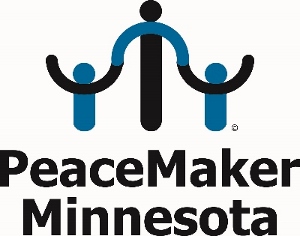
All students need and deserve a safe space in which to learn and grow. But today, approximately 22 percent of students between the ages 12-18 report being bullied at school during the school year.
The impact of bullying can be—and often is—devastating. Students who are bullied are more likely to experience mental health problems like depression and anxiety, and their academic achievement often decreases. And the effects of bullying can trigger critical challenges not only for those who are bullied, but also for other students, families, teachers, and entire school communities.
 Over the last three years, The Improve Group has been proud to work alongside PeaceMaker Minnesota to evaluate the effectiveness of violence prevention programs that aim to reducing bullying. This dynamic nonprofit organization provides funding to a growing number of partner schools to implement evidence-based programs that teach students positive relation skills like empathy and peaceful conflict resolution. Part of that funding is dedicated to helping schools measure the impact of their violence prevention work over time.
Over the last three years, The Improve Group has been proud to work alongside PeaceMaker Minnesota to evaluate the effectiveness of violence prevention programs that aim to reducing bullying. This dynamic nonprofit organization provides funding to a growing number of partner schools to implement evidence-based programs that teach students positive relation skills like empathy and peaceful conflict resolution. Part of that funding is dedicated to helping schools measure the impact of their violence prevention work over time.
PeaceMaker Minnesota’s partner schools administer the Olweus Bullying Questionnaire—the most comprehensive student survey on bullying. The raw data is then shared with The Improve Group, and our team analyzes the responses for each individual school and compares results across participating schools.
Based on our findings, we create a unique report for each school to display their progress, as well as a combined report synthesizing impact across all partner schools. Our work has focused on making each school’s data more accessible and user-friendly—so that school leaders can make informed, strategic decisions about violence prevention programs.
- With access to clear, concise evaluation data, PeaceMaker Minnesota’s partner schools are able to better understand the value of their violence prevention efforts, to make key refinements, and to shape future programming to support a safer school environment.
- By comparing findings across schools and programs, PeaceMaker Minnesota has been able to identify longer-term trends in bullying—as well as best practices in reducing violence and educating students on the importance of respect and cooperation.
Over the last year, PeaceMaker Minnesota has doubled the size of its evaluation program. This spring it increased the number of schools administering the Olweus survey from 10 to 20. And those evaluation findings are now helping schools strengthen violence prevention programs across the state. Since PeaceMaker Minnesota began tracking data in partner schools, 48 fewer students have reported being bullied. The schools who experienced the sharpest declines in bullying were honored at a recent Minnesota Twins game for their exemplary work (pictured above).
By measuring the impact of anti-bullying programs, PeaceMaker Minnesota is not only helping schools identify effective programs—it is raising awareness about the prevalence of bullying and inspiring other school and community leaders to get involved. Partner schools are learning what programs and practices work best for their students, and are being recognized for their commitment to promoting safety and security on their campuses. Working alongside PeaceMaker Minnesota, we can all help to create safer, healthier environments for Minnesota students.
